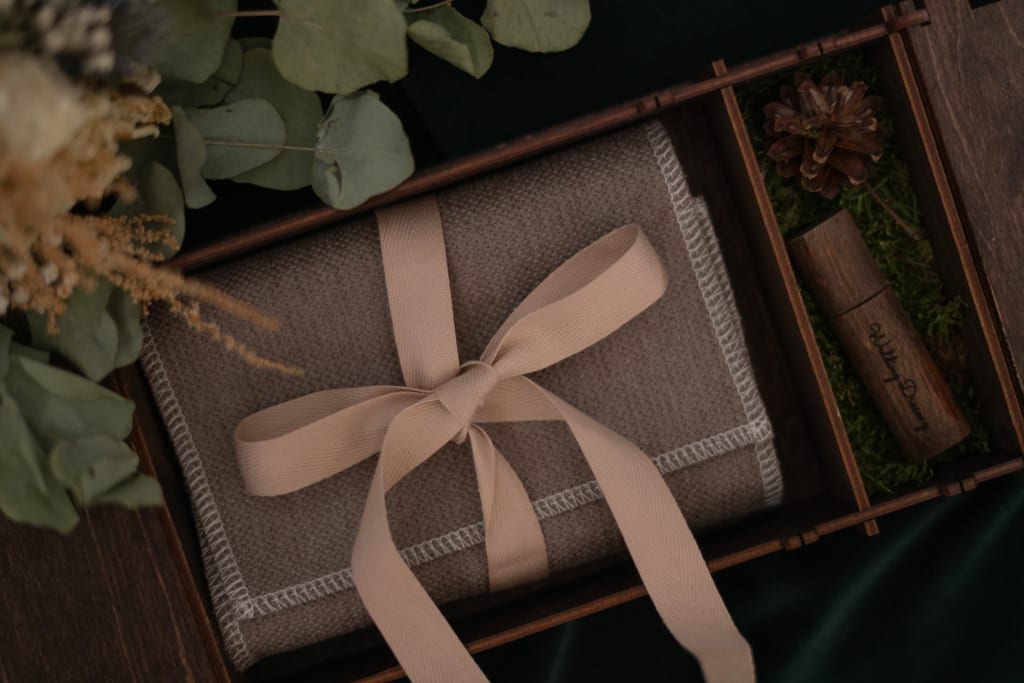How to Create a Legacy Box
For you or someone you love

When I woke up on February 5, 2020, I had no idea that by 5:00 pm I would get a call from my tearful uncle and a somber ER nurse begging me to come to New York as soon as I could, or that I would drive seven hours through a blinding snowstorm to get there, knowing only that Mom might be dead before I arrived.
Mom had been taken to the hospital on her doctor's recommendation after being diagnosed with some form of respiratory virus. Since no one was testing for COVID-19 at that point, we will never know if that was it, or if it was some other virus that afflicted her already-precarious lungs.
Five days later, Mom was dead. The saga of her hospital stay and release is a story in itself, but we were fortunate that when the time came, her large extended family was able to be around her, and she knew who I was and that I was there until the last few hours. Even more of a gift, we were all able to hold a funeral and celebrate her life with friends and family. Had it happened too much later, we would have suffered our grief alone as so many have done due to the pandemic.
I’ve spent the last year going through her things, figuring out what to keep and what to give away, what was meaningful to her and what is meaningful to me. I’m of an age where many of my friends are in the same position: wanting to downsize our own homes, not interested in accumulating more stuff, but wanting to keep certain items of sentimental value as our parents suffer dementia, go into nursing homes, or die.
There are some things I keep and use: lots of her furniture, so much better quality than mine; some items of clothing and jewelry; a random knife from our old silverware set, a wooden abstract carving of a mother holding a child that I bought her in Italy as a gift. Some things, however, are just taking up space. I can’t bring myself to get rid of them, but I need to put them somewhere out of the way.
Hence, the idea of a Legacy Box. (Note: this has nothing to do with the digitizing company of that name.)
A Legacy Box, as I term it, is a place to put particular things that remind me of a loved one, or of our time together. Not everything, but a carefully carated selection that has special meaning. I don't just want a place to dump random stuff. A Legacy Box is not just about my memories; it's also about what was meaningful to them. I have one for my Dad as well, who passed in 2010.
First, I gather the items I want to put in. A bottle of Mom's perfume, the scent of which immediately evokes a vision of her when she was young and healthy. A rare photo of her with my dad soon after they were married. Letters she sent me when I lived in Japan. If I had thought ahead, I would have recorded her voice, or a video. In this era of easily-available technology, it was an odd oversight of me not to do it. In my dad’s box, I have a DVD of a montage of photos from childhood on, set to music, that we played at his Celebration of Life, as well as tapes of us singing Christmas carols together when I was about six (me hilariously bossy and off-key; him patiently trying to coax me through singing the song all the way through. Mariah Carey's got nothing on me in the Christmas Belle Diva department).
I always wanted both of my parents to write down some stories from their lives, or their thoughts about life in general, and gave them journals with specific prompts to do so. They never did. They weren’t writers, unlike me with my boxes and boxes of journals from age twelve onward.
Of course, a person’s true legacy isn’t in their stuff. My parents’ legacies are the values they transmitted, the relationships they maintained, their contributions to the world through companies and communities they served, as well as in the memories I and others have of them.
But sometimes it’s nice to have physical objects to spark those memories. Choosing the things that will best bring me back to those moments with them can be cathartic. I also appreciate having the important items collected in one place, rather than stored in different places all over the house. Once I have everything collected, I find a box of the right size, either pre-decorated or one I decorated myself, and place everything carefully inside (wrapped if need be). It's now ready to be stored, but easily accessible.
While each box is deeply personal, I’ve come to think of a few guidelines as helpful if you'd like to create a Legacy Box of your own:
• You can choose any size box you like. It doesn’t have to be labeled a “keepsake box.” However, I don’t like anything too large, like a moving box. I want to be able to bring it out easily every once in a while. I also don’t want it to be filled with a big jumble of stuff, but carefully curated and placed in the box.
• You can put in things that are meaningful to you, or that were meaningful to them. My dad’s Varsity sports letters and his father’s pocket watch aren’t connected to my personal experience with him, but they were hugely important to the man he became.
• Try to evoke the five senses when possible. My mom’s perfume, or dad’s cigars. Items of clothing – one of mom’s scarves or dad’s golf hats. Taste is harder to evoke! It might be a treasured recipe, or in my dad’s case, a nip of Johnnie Walker Red Label. You might put in music they liked, or movies you watched together. Photos, of course; or videos, recordings, or letters and cards.
• I usually make a little ceremony of bringing out the box and going through the items on special occasions, like their birthdays, or anniversary of their death, or Mother’s/Father’s Day.
You can also create a Legacy Box for yourself. This can be trickier, actually, than creating one for someone else. How do you curate your own life? What might you want people to remember about you? Do you include all your journals, or one volume of autobiography? (There are many books now that guide you through the process of asking questions about your life – where, when, how you grew up; your friends, your values, your insights into life…) What photos do you want to include? Favorite music, movies, or books? Favorite recipes? Favorite scents? Yearbooks? Awards? Stuffed animals from childhood?
The possibilities are endless, but it's good to follow the guidelines of being both meaningful and specific. Of course, you might choose to do one for each decade of your life, or ones around particular meaningful experiences or life events, but then we get into the territory of a general "memory box" and away from the idea of legacy. Consolidating all your "stuff" in such a way can be a good idea though, if only to finally sort through things and get rid of clutter.
It may seem strange to do a Legacy Box for yourself, but most of us will have to downsize someday. We may move into a place where there is indeed, very little space, such as a nursing or other care home. We may not even remember many of the items we put in – or, opening the box may spark memories long-buried due to dementia or the simple passing of time.
You can always make a project of opening it every five to ten years, and removing or adding items as your life changes. The trick to keeping it manageable is to choose one item to represent many: a baby shoe, or a photo of the first day of school, instead of cataloguing a whole child’s life. You can choose how many items you want to focus solely on yourself, or how many are focused on relationships with others such as children, spouse, parents, friends.
When you pass in turn, it can be an incredible gift to your descendants. Make sure that someone knows what the box is, where it is, and what it means to you. If you feel that no one will care, make one anyway. You never know, and in the meantime doing some thoughtful curation of your own life can be its own rich reward as you reflect on a lifetime of meaning and memory.
About the Creator
Jana Van der Veer
Book and mindset coach for writers. Book lover, chocoholic. Go to www.setyourmuseonfire.com to grab your copy of 10 Questions to Ask to Get Unstuck at Any Stage of the Writing Process!






Comments
There are no comments for this story
Be the first to respond and start the conversation.